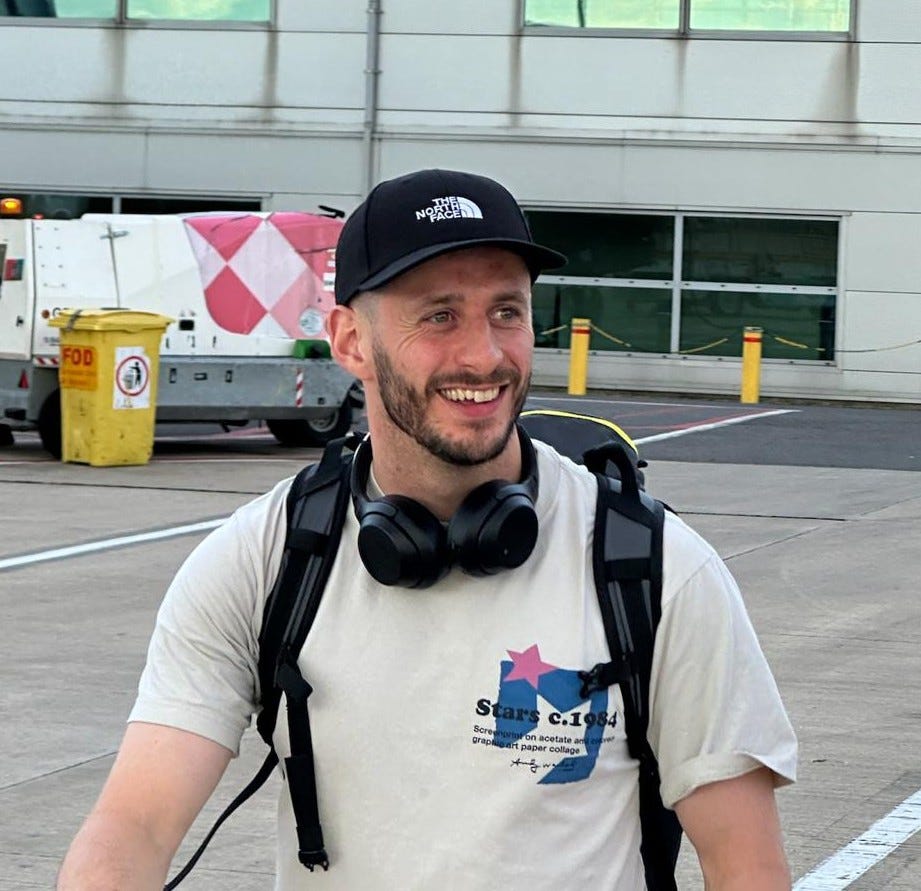Pontem Analytics Intro
I’ve recently joined Pontem Analytics, and wanted to share a bit about my background and journey so far.
Background
I studied Chemical Engineering with Industrial Experience at the University of Manchester (UK), graduating with a MEng in 2015. During that time, I completed a 1 year industrial placement at Sellafield Ltd, which later led to a place on their graduate scheme after finishing university.
Early career - discovering process modeling
I spent several years at Sellafield Ltd, working across multiple engineering roles as part of the graduate scheme, following which I moved into the Sellafield Effluent Management Strategy (SEMS) team. My work there focused on developing high-fidelity, first-principles dynamic process models for nuclear facilities - including multiple effluent treatment plants. These models provided direct input to our environmental reporting of site liquid and gaseous discharges, but were also used to inform strategic decisions and operational improvements. Developing and maintaining these models opened my eyes to directly applying fundamental chemical engineering concepts to industrial processes - and it was at this point I realised that it was exactly the type of work I wanted to pursue for my career!
Motivated by this and keen to develop my skills further I became a lead member of the internal Modelling and Simulation Centre of Expertise which primarily focussed on the assurance of company wide modelling activities. As the years progressed, I moved into a lead role within the Sellafield Effluent Management Strategy (SEMS) team, with responsibility for technical delivery and line management of a small team. It was also during this period that I became a Chartered Chemical Engineer (CEng) with the IChemE.
Pivot to include machine learning…
Aside from process modeling I have always had a keen interest in coding and utilizing it to drive insights from data, which led me to spend my spare time teaching myself how to code primarily in Python. In 2022, this enabled me to take the exciting opportunity to join the Digital Transformation and Integration (DTI) group at Wood – which offered process modelling projects but with an added data-centric and machine learning-focus. My time at Wood greatly expanded my skills in process modelling, control system integration and data science. It also provided invaluable experience working with clients from a wide range of industries - including Oil & Gas, Mining, Renewables and Chemicals. Some highlight projects include:
Developing dynamic first-principles models of oil & gas processes and integrating them with control systems for Operator Training Simulators (OTS’s) - covering key industrial unit operations such as tray distillation columns, absorbers, 3-phase separators, fixed bed hydro-processing reactor, and more.
Designing and deploying a production MLOps workflow for energy usage optimisation - this included automated data ingestion from various sources, data cleaning, feature engineering and down-selection and validation of solar generation and site load generation models. I created multiple workflows to create, re-train and run inference on the two model types. I integrated data transfer from the back end workflow to a front end dashboarding software, to display results and key validation metrics.
Applying deep reinforcement learning (DRL) to optimise complex industrial processes including:
Leading the technical delivery of an offline reinforcement learning optimisation study for a gasoline steam stripper process. I successfully trained agents using offline reinforcement learning algorithms to demonstrate strategies for reducing column flooding occurring whilst keeping impurities in bottom product below acceptable levels. I developed a data driven model of the process and used this alongside Off-Policy estimation methods to assess agent performance compared to baseline.
Leading a Deep Reinforcement Learning (DRL) optimisation study on a froth flotation process to optimise zinc recovery %. I developed and validated a dynamic first principles model of a conventional cell flotation mining process and validated against real plant data, giving results generally within 10%.
Across these various roles, my technical toolkit has included a mix of modelling and data science tools: Python (pandas, numpy, matplotlib, PyTorch, TensorFlow, ray-rllib, etc.), gPROMS, Aspen HYSYS, VPLink, and Rockwell Studio5000.
Looking ahead
I have a strong interest in solving complex problems, an inquisitive mind and strong desire to understand how things fundamentally work which has all ultimately combined to drive the direction of my career so far and now led me to Pontem Analytics. I’m excited to be part of a like-minded team pushing the boundaries of applied modelling and advanced analytics. My focus remains on combining first-principles modelling with data-driven approaches, and exploring how these can deliver actual deployed value - whether in energy, manufacturing, or beyond!
Outside of work, I have a keen interest in language learning, swimming and sports in general. I also work on personal data science projects (if I can ever find the time!) - my most recent one being a Fantasy Premier League player points prediction model and weekly player transfer/selector optimiser.
Excited to see what the future brings!


